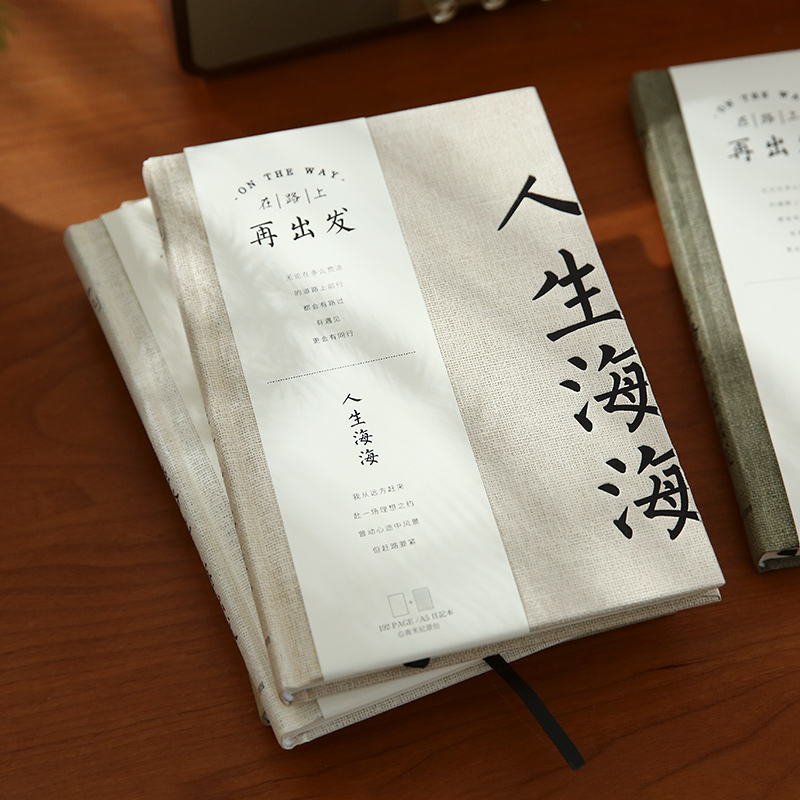"掌握时间管理技巧,手账本使用指南"
蜀犬吠日
2024-10-10 15:00:57
0次
掌握时间管理技巧,手账本使用指南
一、引言
在快节奏的现代生活中,时间管理显得尤为重要。手账本作为一种有效的工具,可以帮助我们更好地规划时间,提高效率。本文将介绍如何掌握时间管理技巧,以及如何有效地使用手账本。
二、掌握时间管理技巧
1. 设定明确的目标:在开始一天的工作之前,设定清晰、可衡量的目标。这将有助于你集中注意力,避免浪费时间。
2. 制定计划:根据目标,制定详细的计划,包括任务分配、时间安排等。这样可以帮助你更好地掌握时间,提高工作效率。
3. 优先级排序:对任务进行优先级排序,先处理重要且紧急的任务,再处理其他任务。这样可以确保你的时间和精力得到最有效的利用。
4. 避免多任务处理:尽管许多人试图同时处理多个任务,但这通常会降低工作效率。专注于一个任务,直到它完成,然后再处理下一个任务。
5. 定期回顾:定期回顾你的时间管理计划,根据实际情况进行调整。这样可以帮助你更好地适应变化,提高时间管理效果。
三、手账本使用指南
1. 选择合适的手账本:根据个人需求,选择合适的手账本,如大小、格式、封面等。
2. 记录每日计划:在手账本上记录每天的目标和计划,包括任务分配、时间安排等。这样可以帮助你更好地掌握时间,提高工作效率。
3. 标记重要事项:用不同的颜色或符号标记重要任务或紧急任务,以便快速找到并处理。
4. 记录时间消耗:记录每个任务所花费的时间,这有助于你评估自己的工作效率,以及调整时间管理计划。
5. 定期复习:定期翻阅手账本,回顾过去的计划和实际完成情况,总结经验教训,调整未来的计划。 6. 灵活调整:手账本是一个灵活的工具,你可以根据自己的需求随时调整内容和格式。例如,可以添加备忘录、提醒事项、笔记等。 四、结语 通过掌握时间管理技巧和有效地使用手账本,我们可以更好地规划时间,提高工作效率。记住,时间管理是一个持续的过程,需要不断地调整和优化。希望本文的介绍能对你的时间管理有所帮助。 ---Master Time Management Skills with Planner Notebook Guide
I. Introduction In the fast-paced modern life, time management is particularly important. As an effective tool, planner notebook can help us better plan our time and improve efficiency. This article will introduce how to master time management skills and how to effectively use a planner notebook. II. Master Time Management Skills 1. Set clear goals: Before starting your day's work, set clear and measurable goals. This will help you focus and avoid wasting time. 2. Make a plan: Based on your goals, make a detailed plan, including task allocation, time arrangement, etc. This can help you better manage your time and improve work efficiency. 3. Prioritize tasks: Prioritize tasks and handle important and urgent tasks first, then handle other tasks. This can ensure that your time and energy are used most effectively. 4. Avoid multitasking: Although many people try to handle multiple tasks at the same time, this usually reduces work efficiency. Focus on one task until it is completed, then move to the next task.5. Regular review: Regularly review your time management plan and adjust it based on actual situation. This can help you better adapt to changes and improve time management results.
III. Planner Notebook Guide 1. Choose a suitable planner notebook: Choose a suitable planner notebook according to personal needs, such as size, format, cover, etc. 2. Record daily plans: Record your daily goals and plans in the planner notebook, including task allocation, time arrangement, etc. This can help you better manage your time and improve work efficiency. 3. Mark important tasks: Use different colors or symbols to mark important or urgent tasks for quick finding and handling. 4. Record time consumption: Record the time spent on each task, which can help you evaluate your work efficiency and adjust your time management plan. 5. Regular review: Regularly review your planner notebook, looking back on past plans and actual completion, summarizing lessons learned and adjusting future plans. 6. Flexible adjustment: The planner notebook is a flexible tool that can be adjusted according to your needs at any time, such as adding memos, reminders, notes, etc. IV. Conclusion By mastering time management skills and effectively using a planner notebook, we can better plan our time and improve work efficiency. Remember that time management is a continuous process that requires constant adjustment and optimization. Hope this introduction can help you with your time management.
上一篇:"手账本——我的随身日记本"
相关内容
热门资讯
探索手账本的多重用途:从学习到...
手账本多重用途:学习记录计划与笔记、思维导图等,生活用于日程管理、购物清单、财务记录等,特殊用途如手...
艺术与实用的结合:手账本的多种...
手账本兼具实用与艺术,可记事、规划、创作和收藏。可记录日程、灵感和财务,美化绘画和创作故事,还可制作...
掌握手账本使用方法,提高效率
掌握手账本使用方法,对提高效率至关重要。选择合适的手账本,规划好结构,坚持记录并定期回顾与调整,可帮...
"手把手教你如何使用手账本"
摘要:
本文详细介绍了如何使用手账本,包括选择合适的手账本、规划页面布局、记录日程和待办事项等基本...
"记录生活的每一刻:如何使用手...
使用手账本记录生活点滴,需先准备本子和辅助工具,规划主题和版面,记录日常和特殊时刻,并定期回顾反思。...
手账本使用全攻略:从入门到精通
**手账本全攻略摘要**:
选择合适的手账本并明确使用目的,学习基础记录方法和多功能页面运用,养成...
记录生活,规划未来:手账本的使...
手账本实用工具,记录生活、规划未来。明确目的、合理布局、使用技巧,保持整洁。分享心得,培养习惯,提高...
从入门到精通:手账本的五大必备...
本文介绍了手账本的五大必备功能:日程规划、待办事项、笔记记录、心情日记和装饰美化。从入门到精通,讲解...
手账本记录美好生活点滴
手账本记录生活点滴,留住美好回忆。通过文字、画图和贴纸等方式,记录日常琐事、心情、旅行经历等,让生活...
高效生活必备:手账本的使用技巧...
手账本为现代生活必备工具,可规划时间、记录生活。选择合适手账本,规划记录,使用技巧及心得分享包括坚持...



